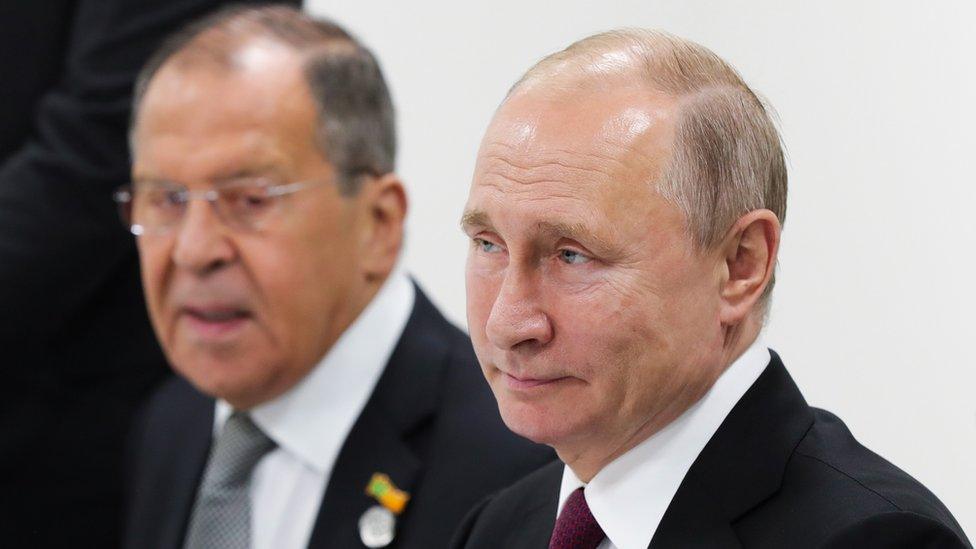Ukraine invasion: UK under pressure to speed up Russia sanctions
- Published
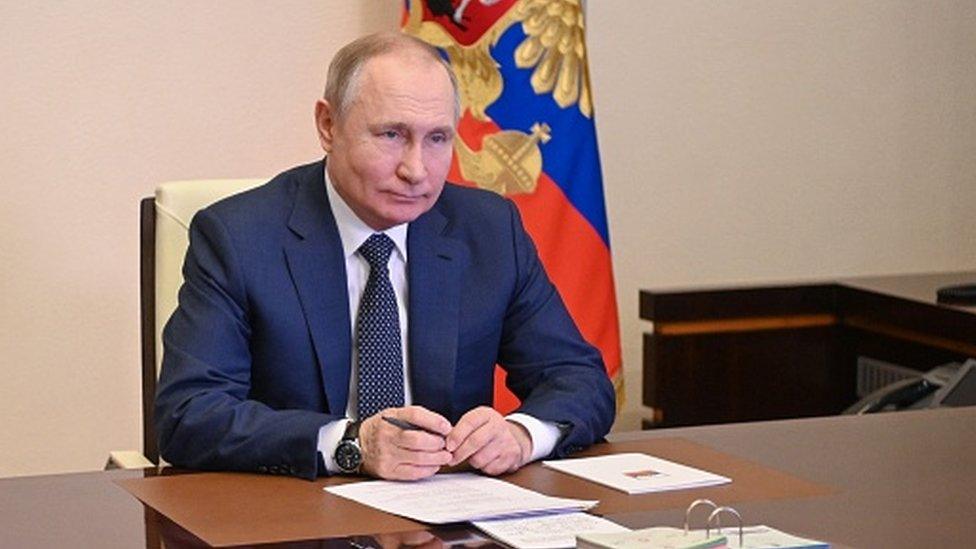
The UK government has sanctioned a number of people it says has links to Russian President Vladimir Putin
The UK government is facing growing calls to move faster on sanctions on wealthy individuals allegedly linked to Russian President Vladimir Putin.
Asset freezes and travel bans on two more oligarchs were announced on Thursday.
But Labour has accused the government of being too slow to target others as Russia's invasion of Ukraine escalates.
Ministers have privately expressed frustration about the process for sanctioning individuals.
They have suggested that amendments made to legislation in 2018 by the crossbench peer and barrister Lord Pannick were contributing to the delay.
Lord Pannick told the BBC he "cannot understand" the allegation.
Sanctions requirements
Lord Pannick put forward a number of amendments at the report stage of the Sanctions and Anti-Money Laundering Act 2018, external, most of which were backed by the government at the time.
The amendments added requirements on ministers to explain why sanctions were "a reasonable course of action" and provide "good reasons" to those subject to them, unless there were national security exemptions.
Lord Pannick said the amendments required ministers to be satisfied that the sanctions imposed were "appropriate".
He said this was the "minimum requirement of the rule of law" and he could not see how it could "impede proper government action".
The alternative, Lord Pannick said, was that "the government can do whatever it likes", which would be "contrary to the rule of law".
He said he "strongly suspected" that the government had not "given sufficient resources" to those who were responsible for identifying sanctions targets.
One of the UK's most prominent barristers, Lord Pannick is best known for his role in public law leading cases before the country's top judges - meaning legal disputes concerning the rules for government and public bodies and constitutional or human rights questions.
In the House of Lords, the crossbencher has often spoken in debates in which he says proposed legislation needs cleaning up to ensure that it holds government to high standards through clear tests of how it exercises its power.
His high profile clients have included Queen Elizabeth II and British tennis player Greg Rusedski.
In one of his best-known cases, he led legal action which forced the government to seek Parliament's approval before starting the Brexit process.
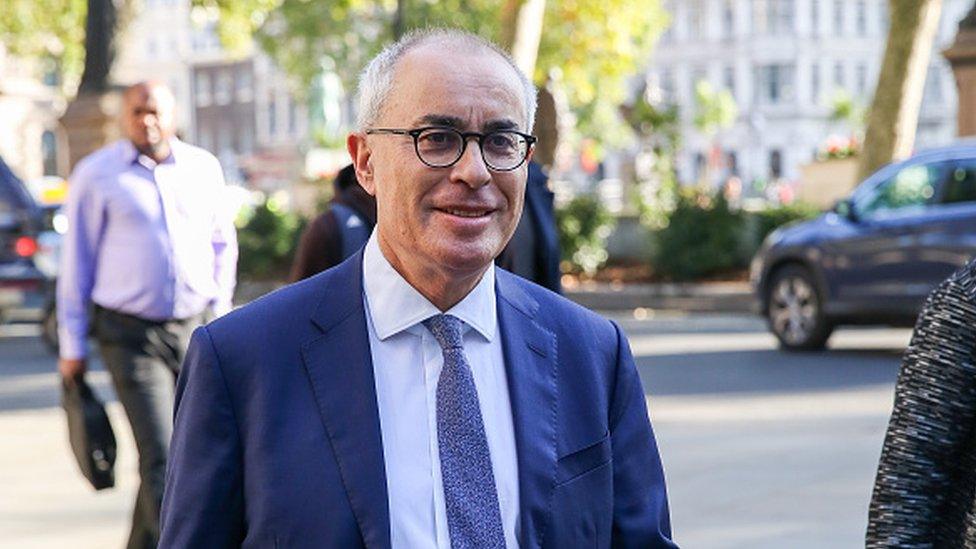
Lord Pannick has appeared in dozens of cases before UK and European courts
Another case saw him help the Kingdom of Saudi Arabia to establish in the House of Lords that state immunity applied to allegations of torture.
Lord Pannick told the BBC he represented Russian businessman Arkady Rotenberg in 2014 and 2015 in relation to sanctions imposed by the EU.
A friend and former judo sparring partner of President Putin, Mr Rotenberg became owner of two of Russia's biggest construction contractors, SGM Group and Mostotrest, in the 2000s.
Mr Rotenberg is currently listed under EU sanctions, external related to "actions undermining or threatening the territorial integrity, sovereignty and independence of Ukraine".
Oligarch taskforce
The UK government says it will take time to follow due process and build legally sound cases for sanctions against wealthy targets.
Foreign Secretary Liz Truss is understood to have increased the size of the sanctions team at the foreign office in recent months.
This week, Ms Truss told MPs that a special oligarch taskforce - composed of ministers and officials from across government - will be formed to build cases against targets.
But critics say the National Crime Agency (NCA) has been starved of funds for years.
Last week Prime Minister Boris Johnson said it was time to "squeeze Russia", as he announced what he called "the largest and most severe package of economic sanctions" the country had ever seen.
Watch Boris Johnson tell MPs that the UK will squeeze Russia from the global economy
Since then, the UK government has imposed sanctions on Russian companies, banks and individuals with links to President Putin.
Analysis by BBC Reality Check showed 15 individuals were sanctioned last week, including Russian Foreign Minister Sergei Lavrov, Belarusian defence chiefs and President Putin himself.
Alisher Usmanov and Igor Shuvalov were the latest Russian oligarchs to be sanctioned on Thursday, with the UK banning British citizens and businesses from dealing with them.
'Go further'
There are, however, still a number of Russian individuals who have been sanctioned by the US or the European Union, but not by the UK.
Labour leader Sir Keir Starmer said he supported action the government was taking on sanctions but urged ministers to "go further and faster".
"We must go after every oligarch," Sir Keir said. "This is the weapon we have to use and we need to use it now."
Defending the government's response, Deputy Prime Minister Dominic Raab rejected suggestions the UK had been slow in imposing sanctions against Russia.
He told BBC Breakfast "we've not been slow, we've been at the vanguard of taking action".
Asked whether the UK should be sanctioning more individual Russians, Mr Raab said "it's not whether it's individuals or companies, it's where the money is flowing".
A bill designed to help he government clampdown on economic crime is set to be rushed through the House of Commons on Monday.
The government says, external the Economic Crime Bill will help investigators "prevent foreign owners from laundering their money in UK property" and ensure oligarchs "can't hide behind opaque shell companies and foundations".
But a cross-party group of MPs believe it isn't strong enough and have tabled four amendments which they say would increase transparency.
These are designed to ensure lawyers and estate agents employed by oligarchs would be required to reveal where their clients' assets are.
One of the bill's leading signatories - former Conservative Party leader and MP Iain Duncan Smith - intends to urge ministers to accept the changes.
He told the BBC if no agreement was reached, the MPs would press the issue to a vote.
A government spokeswoman said ministers would consider "sensible" amendments and were open to discussions with MPs.

Russia attacks Ukraine: More coverage
THE BASICS: Why is Putin invading Ukraine?
SCENARIOS: Five ways the war in Ukraine might end
INNER CIRCLE: Who's in Putin's entourage, running the war?
IN DEPTH: Full coverage of the conflict
- Published4 March 2022
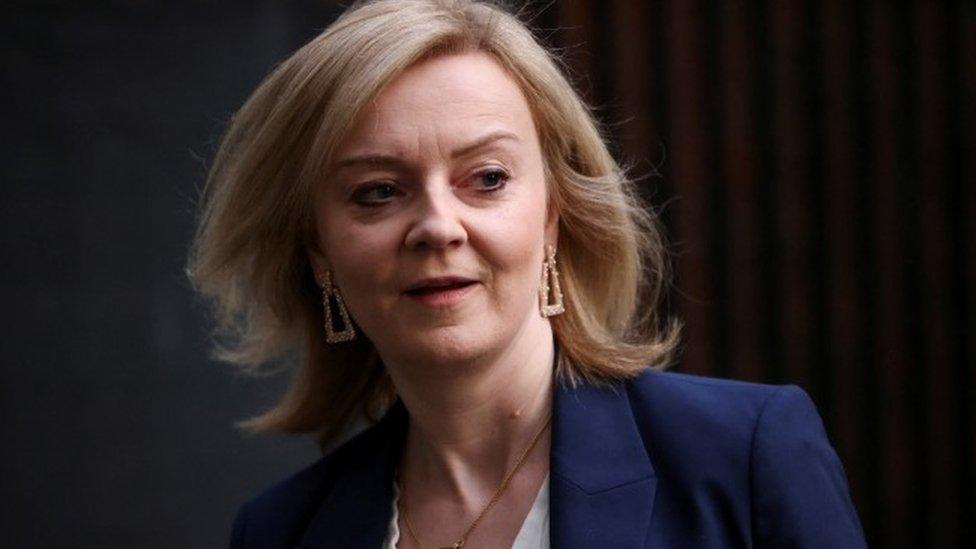
- Published4 May 2022
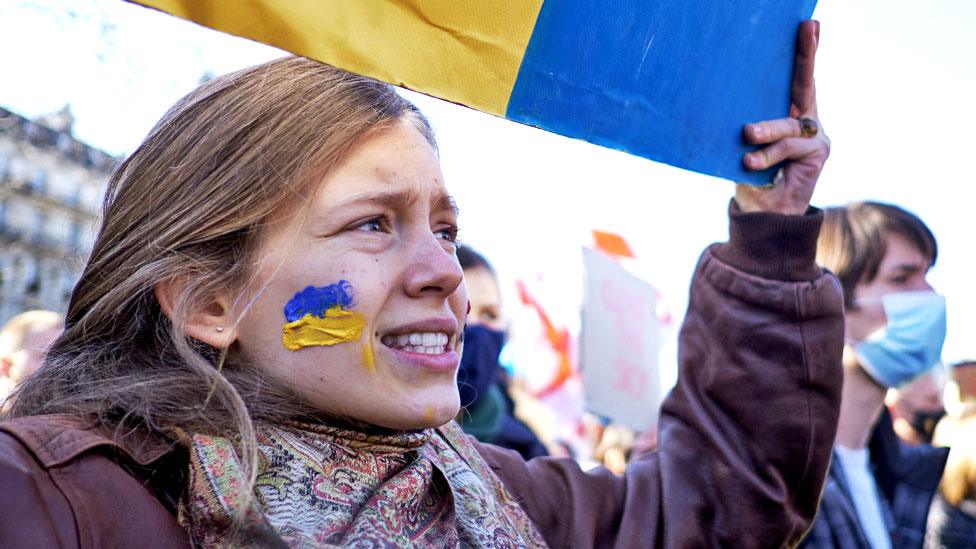
- Published26 February 2022
